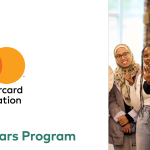Belgium is a country surrounded by three famous countries in Europe – France, Holland and Germany. It has three distinct languages, namely: Dutch, French and German. All three languages are officially recognized by the state as their official languages.
Generally, the official language used by Belgian universities is dependent on the language spoken by the community housing that university.
The educational system of each community is decided by such a community.
Hence, you must research the basic requirements for the university of your choice based on the host community.
Even though Belgium is a relatively small country, it can boast of 5 universities that made it to the top 200 universities in the world by the QS World University Rankings.
More so, Belgium is a welcoming environment for international students. It can offer you an amazing study experience, reason you should not think twice to study here.
There are numerous higher institutions in Belgium, with each offering high-quality education at every level.
Belgium is multicultural and known for its great quality of life healthcare and education.
Higher institutions in Belgium are welcoming towards international students and you can find beautiful places to explore in the course of your stay.
Table of Contents
Study and Work in Belgium
Students from EU or EEA countries can work without any additional permission. But an international student needs a work permit before working in Belgium. Without permission in the form of a work permit, you may not be eligible to work while studying in the country.
Your residence permit, issued by the municipality, states all the conditions for students to work in Belgium. As an international student, you can’t work for more than 20 hours per week while school is in session. If you work more than the stipulated number of hours, it means that the major reason for your coming to Belgium is no longer schooling but working. This could pose a problem to your employer and to you also when you need to renew your resident permit.
However, during the holiday or vacation periods, you might work for a longer period of time. The school holidays you will encounter include Christmas, spring and summer, which is the longest.
Furthermore, with a country boasting three official languages, of which none of them is English language, you have to up your game in order to get a good job. Also, your language skills must be great because you are going to be competing with nationals who, probably, can speak more than one language. So, if your only language is English, you might be in for more job competition.
However, there is a solution. The earlier you learn the official language of your region, the more chances you will have to secure a job. Also, you can sign on with various recruitment agencies because they have specialities in different sectors and know the best and most available jobs for students. The most favourable jobs are in Brussels and other big cities of Belgium. It does not mean that you will not be able to secure any in smaller cities.
In addition, places like restaurants, warehouses, supermarkets, cafes, and other public places could have vacancies. You can also check with the university portals for any job openings around your department or faculty.
There are also freelance jobs available online like writing, web designing, graphic designing, social media management, digital marketing, and so on. If you lack the right skills, you can take a short course to upgrade your knowledge and launch out.
Tuition Fees for Both EU and Non-EU Students in Belgium
Belgium has both public and private higher institutions. Your tuition will depend fully on your choice of institution. The good news is that tuition fees at Belgian universities are relatively affordable.
When it comes to tuition fees, EU students are to pay an estimated amount of €850 per annum. This is not so for Non-EU students as there are additional charges and extra tuition fees they must pay. The range of their payment is between €1000 and €4000 and this is dependent on the university.
If you are studying for a master’s or other postgraduate degree programme, you are to pay an application fee. There are also funding and scholarships available and they are usually competitive, though it does not mean that you may not be lucky. To know more about your studies, contact your institution.
Recommended Video: Top 10 Scholarships in Belgium for International Students
Universities in Belgium
Some of the top universities in Belgium include:
- University of Leuven
- University of Antwerp
- Ghent University
- University of Liege
- Vrije Univerisiteit Brussels (VUB)
Cost of Living
The living costs in Belgium are dependent on which part of the country you live in. Nevertheless, the cost of living in this country of waffles, chocolates and beers is quite low compared to other European countries. There are accommodations on campus and private residences. The university accommodation is quite cheaper than the private residence. Averagely, your living expenses might cost between €750 and €1 100 per month and covers accommodation, feeding, travel and other expenses.
You could also get a part-time job to augment your expenses while studying.
Health Insurance for Students
One of the compulsory documents you need while staying in Belgium is health insurance. If you hold an EHIC, you can have access to healthcare at just the same price as Belgian citizens. If you do not have any, you will need to purchase health insurance or make sure that your current policy is valid for your stay in the country. Furthermore, in any case, you must join a ‘mutuelle’ in order to enjoy health insurance benefits.
Language Proficiency
Belgium has three official languages: Dutch (Flemish), French and German. Even though there are courses taught in these languages, the majority of the courses are taught in French. This does not mean that you cannot study in English language as English language is widely spoken in the country and a lot of the university courses are taught in the language.
To apply for any of the Belgian official languages, you must pass the language proficiency tests. These tests are the standards for validating your language skills. However, if you can’t pass the language tests, there are courses to help you improve your language tests.
Student Visa Application
Students from EU or EEA countries do not need a visa application to study in Belgium. But international students outside the EU or EEA member countries are to apply for a visa to study in Belgium. You will need to visit the Belgian consulate in your home country to apply for the visa.
Before applying for a student visa in Belgium, you will have to be sure of your admission. For the visa application process, you will have to demonstrate your acceptance letter from the university as proof of admission.
Both a visa and a residence permit are needed by an international student in Belgium. As a student, you will need a long-term visa. This might take up to 60 days or two months before you are able to get it. Therefore, you need to apply for the visa 60 days before your departure to Belgium in order for you to meet up. However, if perchance, you need a visa for a short stay, three weeks before your departure might be enough for the processing of the visa.
Get the email address of the consulate or embassy and book an appointment with them. Upload the required documents and within the next two days, you will receive a response confirming your appointment. If at all you would want to change your appointment, let the embassy know. The sooner you start your visa application, the better for you because the number of people applying for a visa might be a factor that would delay your own visa.
Documents Required
You will need the following to apply for a Belgian student visa:
- A passport that is valid for 3 months longer than the visa
- 2 original visa application
- Acceptance letter from your university of study
- Copies of your educational certificates
- Cover letter
- Medical certificate
- Proof of adequate financial means to take care of your study and living expenses
- Past criminal record if you are above 21
- Visa application fee (€210 for a long stay and €70 for a short stay)
There may be additional documents required by the consulate, depending on your country.
Applying for a Residence Permit
A work permit can be applied for from the regional employment agencies in Belgium. As an international student in a Belgian university with a valid residence permit, you can work for up to 20 hours per week while school is in session. It could be more during the holiday and you may not need the work permit. Ensure that working hours do not overlap with your studies as this might affect your scores.
A written fixed-term contract needs to be got from your employer and it is called a ‘student employment contract’.
To apply for a residential permit, you need to do that within 8 weeks of your arrival in Belgium. Reach out to the local municipal administration offices to register for a residence permit. With the residence permit, you can open a bank account, apply for a work permit and also purchase an insurance policy in Belgium.
There are some cases where you can apply for a residence permit at your institution and they will help you with the application process.
You could also visit the official website of the Belgium Immigration Office for more information on the visa application.
In conclusion, it is very possible to work while studying in Belgium. Ensure your grades are also adequate enough to take you to the next academic level. Failing in your academics because you are working may not say something positive about you. Therefore, give your studies adequate time in order to balance study and work life.








